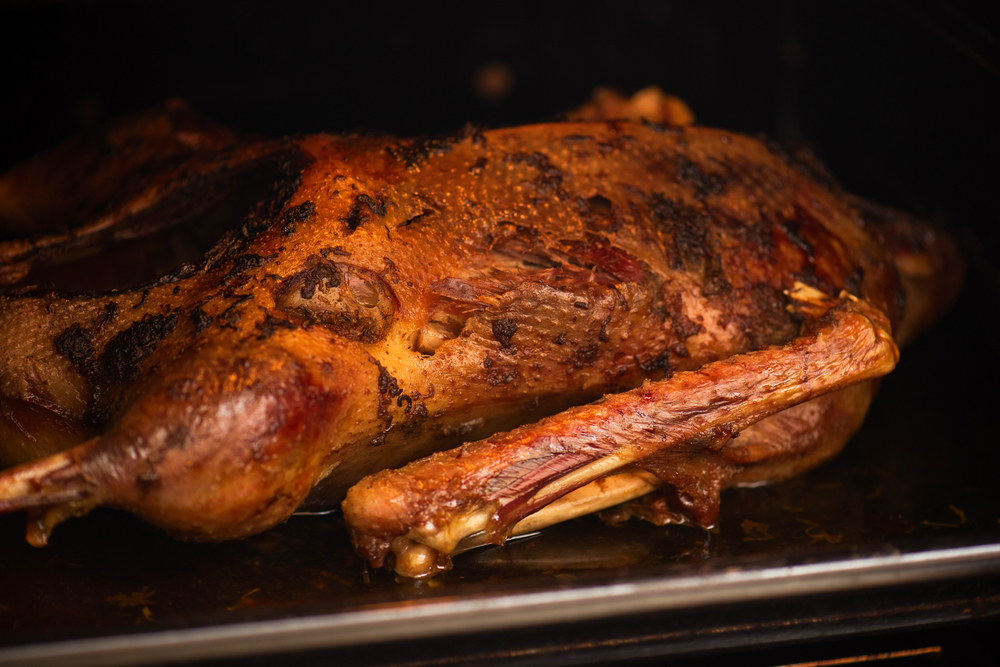A special treat but not one for the feint-hearted – a goose is a big bird and needs a lot of oven room. There is also the necessary and hazardous business of dealing with a large quantity of hot fat! Make sure you know the weight of the goose when you buy it so that you can calculate the time – it’s not fun trying to weigh a goose on a set of domestic kitchen scales. It is a good idea to make the giblet stock for the gravy the day before you need it if possible. Spiced Apple Sauce, Roast Potatoes and Parsnips, Leek Bacon and Sage Stuffing and some lightly cooked greens are good to have with it.
For 6 -8
1 oven-ready goose (about 5kg) – remove the giblets to make stock for the gravy
3 large lemons, each cut in half
3 or 4 sprigs of rosemary
Salt flakes
A little olive oil
For the gravy
3 tbsp plain flour
2 litres of giblet stock*
Salt flakes and freshly ground black pepper
The Goose will need to cook for 30 minutes for each kilo and then rest for 30 minutes. As already mentioned, be sure to ask the weight when you buy it so that you can calculate the right cooking time.
Preheat the oven to 200c.
Put the goose in a large roasting pan.
Put the lemons and rosemary inside the cavity.
Rub the olive oil and about 2 tsp of salt flakes into the skin of the goose.
Roast the goose in the preheated oven for 2 hours, check every 30 minutes as masses of fat will run out. You will need to drain the fat into bowls. Get someone to help you as it is unwieldy, and you need to be careful with the hot fat. Be sure to save the fat for roast potatoes.
After 2 hours, check that the goose is cooked by inserting a knife into the gap between the thickest part of one of the legs and the body. If the juice runs clear, it is cooked. If the juice is pink or bloody, it needs more cooking time.
When it is cooked, drain off the remaining fat and transfer the goose to a warm plate and cover it with foil to keep it warm while you make the gravy.
To make the gravy, put the roasting pan over medium heat, add the flour and use a wooden spoon to scrape up the meaty residue and mix it with the flour. Whisk in the stock, turn up the heat and continue whisking (this stops lumps from forming) until the gravy starts to boil and thicken. Reduce the heat and let the gravy bubble away for 20 minutes for the flavour to develop. Taste it and add salt and pepper if you like.
Strain the gravy through a fine sieve into a warm jug to serve it.
*For the giblet stock
Put the giblets in a pan and cover them with 2 litres of water.
Add 3 onions, each peeled and cut in half, and 3 bay leaves.
Set the pan over high heat on the hob and bring the whole lot to the boil, then reduce the heat and let the stock bubble gently for at least 45 minutes.
Strain the stock through a sieve into a bowl or jug until you need to make the gravy.

